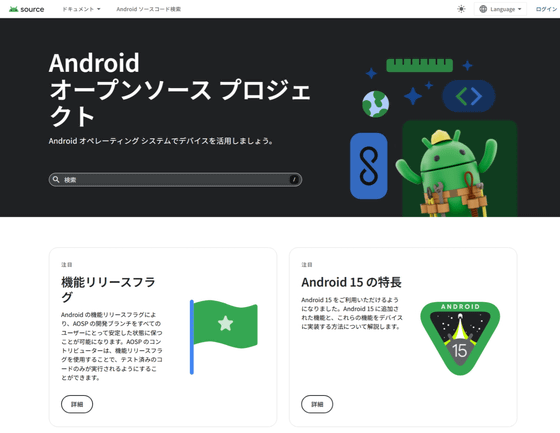Google decides to make Android development private, but it will not affect users or app developers

Google has been using the open code review system Gerrit to share information about some of the development of its mobile operating system Android, but it has now announced that all work will be made private. The reason for the change is to streamline the development process by eliminating discrepancies between the public branches of the Android Open Source Project (AOSP) provided by Google and Google's internal branches for product development.
Exclusive: Google will develop the Android OS fully in private, here's why
Google will move Android AOSP development behind closed doors
https://9to5google.com/2025/03/26/google-android-aosp-development-private/
Android development moves internally at Google ahead of public releases - Neowin
https://www.neowin.net/news/android-development-moves-internally-at-google-ahead-of-public-releases/
While the only smartphone with iOS is the iPhone developed by Apple, smartphones with Android are released by many manufacturers in addition to Google, and some manufacturers, such as Samsung, use their own customized UI called 'One UI.'
One UI | UI customized for Galaxy | Samsung Japan Official
https://www.samsung.com/jp/one-ui/

This is because Google has released the OS under
Android Open Source Project
https://source.android.com/

Because it's an open source project, third-party developers can contribute code to AOSP, but in reality, Google, which treats AOSP as a full-scale product development business, is developing most of it in-house. For this reason, Google has the final say on 'what code to merge into AOSP and when to release new versions of the source code,' according to the news site Android Authority.
In order to balance the 'open nature' of AOSP with its 'product development strategy,' Google has a public branch that anyone can access and an internal branch that is only accessible to companies that have signed a Google Mobile Service (GMS) license agreement, and core components are developed in private on the internal branch.
However, the public branch fell behind the internal branch, which caused conflicts when integrating AOSP patches into the internal branch, requiring Google to spend time and effort to fix them.
According to Android Authority, Google will be 'privatizing' all Android development by moving it to internal branches in order to simplify the development process and make it less problematic.
Please note that just because Google is moving all of AOSP to an internal branch, this does not mean that AOSP will become closed source.
The news site 9to5Google stated that the change will have little impact on users or app developers, but took a positive stance, saying that the appearance of the 'Pixel 10' name in AOSP commits may reduce problems with misunderstandings and exaggeration.
Related Posts:
in Software, Posted by logc_nt







